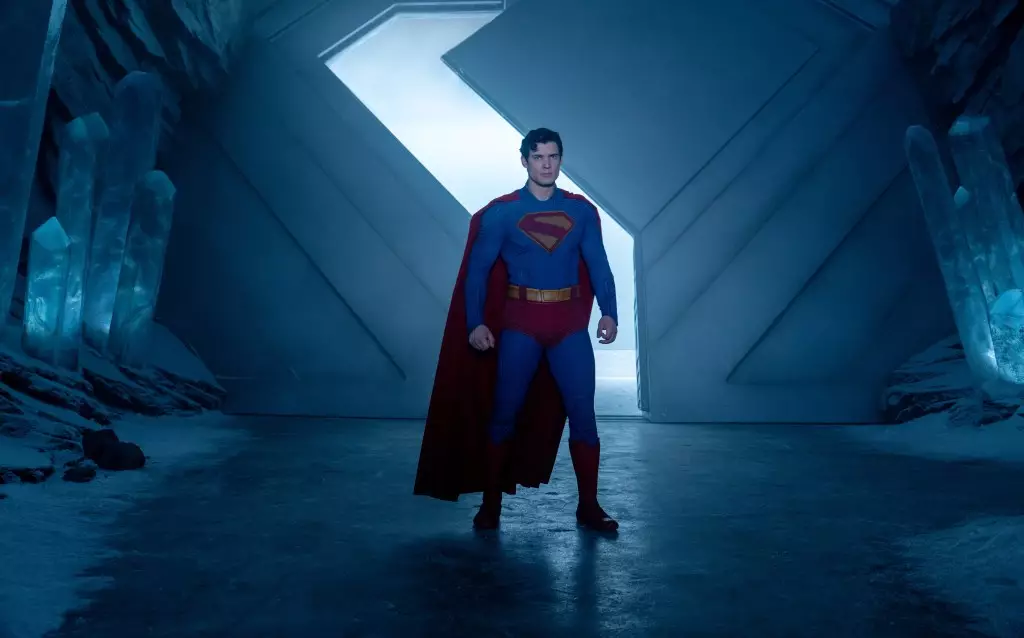The recent rollout of Warner Bros.’ latest Superman movie, under the direction of James Gunn, has elicited a mix of excitement and concern among industry insiders and fans alike. While early box office figures appear impressive—particularly in international markets—this initial burst masks deeper issues that threaten the sustainability of the franchise. The film’s opening, marked by significant first-day revenues worldwide, seems to suggest a blockbuster in the making. However, a closer, more skeptical examination reveals that these numbers may be more superficial than substantive. The persistent tendency to chase box office peaks without building a resilient narrative or character development undermines long-term franchise health, especially when the film’s core elements remain unoriginal or overly reliant on proven formulas.
Much like previous attempts to revive beloved properties, this Superman installment seems to rely on a sense of nostalgia that may not translate into lasting appeal. The international performance, while robust on the surface, hints at a broader issue: it is driven more by marketing muscle than genuine enthusiasm. For example, Korea, a challenging market for Hollywood, started with a modest $700,000 but managed to achieve top status early on—yet this figure is a far cry from the dominant performances of classics or even more established superhero fare. The game of counting international markets—what feels like a demographic card trick—does little to grasp whether audiences are truly engaged or merely responding to aggressive promotional campaigns.
Chasing Global Success While Failing to Cultivate Cultural Connection
While Warner Bros. touts impressive numbers from markets like France, Italy, and Brazil, there’s an underlying issue with cultural relevance. The film seems to be a generic superhero vehicle, not tailored to resonate meaningfully with the diverse global audience. Its strong debut in France, a country known for its discerning cinephiles, is a potential misjudgment or overestimation of the audience’s appetite for a blockbuster that barely reflects cultural nuances. In markets like Italy and Indonesia, the film’s performance is similarly average—indicative of a global franchise that is more about volume than depth.
Clinging to prior successes such as “Aquaman” or “The Batman” as benchmarks further reveals a lack of innovation within the DC universe’s current iteration. These comparisons serve to inflate expectations artificially, masking the reality that audiences may crave more than just a familiar hero with a shiny new coat of paint. The international rollout efficiency cannot mask the stagnation in storytelling that makes the franchise feel like a commodified product rather than a vibrant mythos.
Short-Term Gains Versus Long-Term Audience Engagement
The apparent triumphs on opening days, like Mexico’s $2.2 million or Brazil’s $2 million, are likely fleeting. These figures, while notable, are too often used as indicators of sustained interest—yet experience suggests otherwise. Early triumphs tend to fade when the film fails to maintain quality, originality, or emotional resonance. The rapid international expansion, with 78 territories now carrying the film, looks impressive on paper but risks diluting the brand if the storytelling does not elevate beyond mere spectacle.
Furthermore, the attempt to position this Superman movie as a cultural milestone overlooks a critical aspect: audience attachment. When a franchise becomes more about record-breaking figures than meaningful stories, it risks losing its soul. The enthusiasm for opening weekends often diminishes quickly when the core narrative fails to deliver depth or authenticity. This pattern—relying on market share rather than meaningful engagement—indicates a reliance on corporate metrics over genuine cultural impact.
The Fallacy of Box Office as a Sole Success Metric
In this context, the initial box office numbers are misleading. They are a reflection of aggressive marketing, franchise familiarity, and the allure of blockbuster spectacle. They do not necessarily translate into sustained popularity or cultural significance. The superficiality of these early successes becomes apparent when examining long-term potential—something that, judging by past experience, remains uncertain.
The film’s widespread international debut may appear promising, but if future audience reception does not mirror this initial surge, the entire campaign risks becoming a hollow victory. Relying on these figures to justify a franchise’s vitality ignores critical factors: storytelling quality, character development, and cultural resonance. Ultimately, the initial box office not only masks underlying flaws but also sets up expectations that may be impossible to fulfill in the long run. Warner Bros.’ strategy of maximizing short-term gains through global marketing flairs might yield early profits, but it does little to ensure enduring relevance or robustness in an era where audiences demand more than just a familiar hero in shiny armor.

Leave a Reply